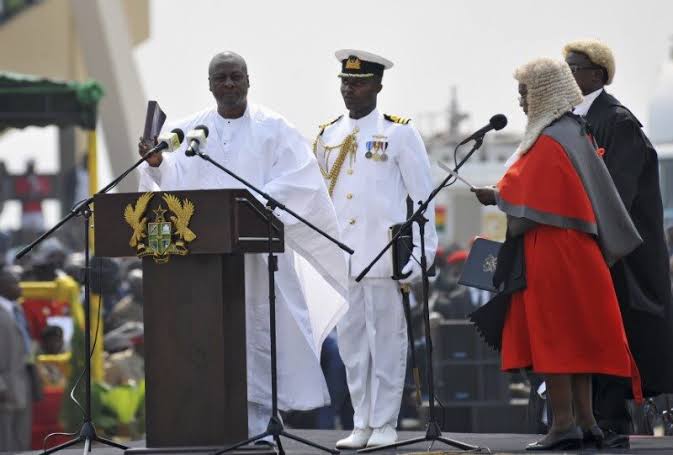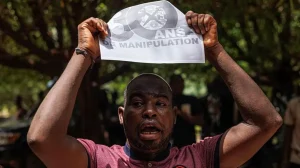
President John Mahama of Ghana has taken a decisive step to reduce government spending by slashing the number of ministries in the country from 30 to 23. This restructuring, which was formalized via an executive order, was documented in a gazette dated January 9—just two days after his inauguration.
The decision led to the dissolution of several ministries established during the tenure of former President Nana Akufo-Addo. Ministries such as Information, Sanitation and Water Resources, National Security, Railway Development, Parliamentary Affairs, Public Enterprises, and Chieftaincy and Religious Affairs have been scrapped.
Under the new arrangement, Mahama retained core ministries, including Finance, Health, Interior, Defence, and Education. He also introduced new portfolios, such as the Ministry of Energy and Green Transition, Youth Development and Empowerment, Trade, Agribusiness and Industry, and Gender, Children and Social Protection.
President Mahama, who previously served as Ghana’s leader from 2012 to 2017, reclaimed office after defeating former Vice President Mahamudu Bawumia in a keenly contested election. Mahama secured 6,328,397 votes (56.55%), while Bawumia garnered 4,657,304 votes (41.6%). Bawumia graciously conceded defeat before the official results were announced.
This cost-cutting initiative contrasts with the approach of Nigerian President Bola Tinubu, who expanded Nigeria’s ministries from 44 to 48 in 2023. Tinubu’s move attracted criticism as Nigeria continues to face a worsening cost-of-living crisis.
Observers see Mahama’s move as a bold statement on fiscal discipline, with analysts debating its potential impact on governance and service delivery.








